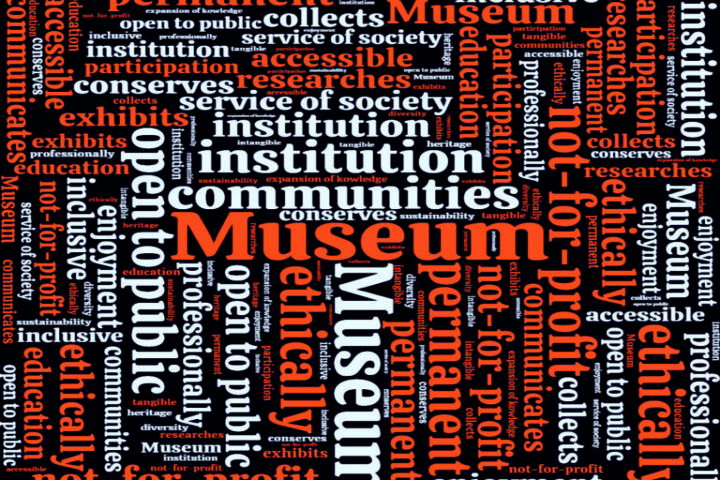May 3, 2022
Museum Definition: Two alternative proposals to be discussed and one of them voted in Prague

Museum Definition: Two alternative proposals to be discussed and one of them voted in Prague
ICOM Define committee just launched its report on the consultation stage 3 referring five proposals for the new Museum Definition to be discussed and eventually adopted at the General Assembly to take place during the General Conference to hold in Prague, next August.
The report in reference is a very clear document, allowing readers to fully understand the positions took by ICOM committees, alliances and affiliated organizations. Two final alternatives before Prague are now considered. Former proposal 2, including some minor modifications suggested during the previous consultation (one being clearly originated in an ICOM Europe suggestion: the term “research” adopted as a function and not a purpose as before) in now turned into PROPOSAL A. Former proposal 3, also with a few changes, is converted into PROPOSAL B.
See below the report of MUSEUM DEFINE will be formally presented to the Advisory Council. Auspicious moments are to be expected in Prague, since the remaining alternatives are both very much acceptable and in accordance with what ICOM individual members and their representative committees, alliances and affiliated organizations were increasingly saying, and demanding, since well before the last General Assembly in Kyoto, 2019.
The two proposals now under scrutiny are as follows:
Proposal A (previously n. 2):
A museum is a permanent, not-for-profit institution, accessible to the public and of service to society. It researches, collects, conserves, interprets and exhibits tangible and intangible cultural and natural heritage in a professional, ethical and sustainable manner for education, reflection and enjoyment. It operates and communicates in inclusive, diverse and participatory ways with communities and the public.
Le musée est une institution permanente, à but non lucratif, au service de la société et accessible au public. Il mène des recherches, il collecte, conserve, interprète et expose le patrimoine matériel et immatériel, culturel et naturel. Le musée opère d’une manière professionnelle, éthique et durable, à des fins d’éducation, de réflexion et de plaisir. Il agit et communique de façon inclusive, diversifiée et participative avec les publics et différentes communautés.
Un museo es una institución permanente, sin ánimo de lucro, accesible al público y al servicio de la sociedad. Un museo investiga, colecciona, conserva, interpreta y exhibe el patrimonio material e inmaterial, cultural y natural, de manera profesional, ética y sostenible, con fines de educación, reflexión y disfrute. Los museos operan y se comunican de forma inclusiva, diversa y participativa con las comunidades y los públicos.
Proposal B (previously n. 3):
A museum is a not-for-profit, permanent institution in the service of society that researches, collects, conserves, interprets and exhibits tangible and intangible heritage. Open to the public, accessible and inclusive, museums foster diversity and sustainability. They operate and communicate ethically, professionally and with the participation of communities, offering varied experiences for education, enjoyment, reflection and knowledge sharing.
Un musée est une institution permanente, à but non lucratif et au service de la société, qui se consacre à la recherche, la collecte, la conservation, l’interprétation et l’exposition du patrimoine matériel et immatériel. Ouvert au public, accessible et inclusif, il encourage la diversité et la durabilité. Les musées opèrent et communiquent de manière éthique et professionnelle, avec la participation de diverses communautés. Ils offrent à leurs publics des expériences variées d’éducation, de divertissement, de réflexion et de partage de connaissances.
Un museo es una institución sin ánimo de lucro, permanente y al servicio de la sociedad, que investiga, colecciona, conserva, interpreta y exhibe el patrimonio material e inmaterial. Abiertos al público, accesibles e inclusivos, los museos fomentan la diversidad y la sostenibilidad. Con la participación de las comunidades, los museos operan y comunican ética y profesionalmente, ofreciendo experiencias variadas para la educación, el disfrute, la reflexión y el intercambio de conocimientos.